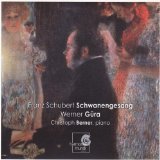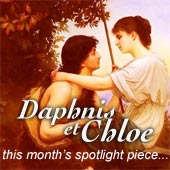Schwanengesang
Schubert's Last Masterful Songs
Schwanengesang is the last collection of songs Franz Schubert wrote. The eerie and exquisite music is a testament to his incredible abilities...
The poems come from three different poets (Ludwig Rellstab, Heinrich Heine, and Johann Gabriel Seidl).
Schubert wrote the songs in 1828, his last tormented year alive. His composing skills were at their peak.
The pieces are near-perfect: well-balanced, full of richness, and with Schubert's flair for catchy melodies.
We don't know if the set is complete, or even if Schubert wanted the songs as a cycle. I think he didn't - the style of the songs differs too much.
Example: the songs from Heinrich Heine are much more powerful than the rest, and the song by Siedl sounds too light for the set.
The name Schwanenesang means Swan Song in German. The first publisher of the set gave it this name, to romantically represent it as Schubert's final burst of music before his death.
So the composer had nothing to do with the name the collection is now known as...
Franz Liszt helped to spread the popularity of Schwanengesang in the 19th century, by writing dazzling transcriptions for solo piano of each piece. Thanks!
The cycle has a great consistency of quality from song to song. Schubert's previous two cycles contain some songs which I don't like very much, but I enjoy nearly every song in Schwanengesang.
List of Swan Songs

Here are the pieces, in Schubert's original order. The first seven are from poems by Ludwig Rellstab, numbers 8-13 by Heinrich Heine, and the last (Taubenpost) was written by the Viennese poet Johann Gabriel Seidl.
- Liebesbotschaft (Message of love). A song about a little stream (Schubert seems to have done a fair amount of these!), with a flowing water-like piano accompaniment. The singer asks the stream to take a message to his lover.
- Kriegers Ahnung (Warrior's Foreboding). In this piece, full of heroic chords, a soldier is surrounded by his sleeping comrades at night. He sings about the comfort of his lover.
- Fruehlingssehnsucht (Spring Longing). The piano creates an atmosphere of bustling beautiful spring, but the singer feels unhappy because of his unrequited love.
- Staendchen (Serenade). One of Schubert's most famous songs. The singer serenades his beloved at night, and bids her to come and meet him.
- Aufenthalt (Dwelling). This is one of my favorite songs from the cycle. A stormy and dramatic piece, whose music reflects the internal conflict of the singer.
- In der Ferne (From Afar). A melancholy piece. The singer has abandoned his home, his heart having been broken by a girl.
- Abschied (Farewell). A very cheerful piece, where the piano mimics the sound of a horse trotting. The singer says goodbye to at town and the scenery.
- Der Atlas (Atlas). A powerful piece. The singer complains about his eternal misery, which weighs down on him like the world on Atlas's shoulders.
- Ihr bild (Her Picture). The singer talks about how he daydreamed that a picture of his beloved smiled at him. The piano copies the singers melody in this song, which makes a very frightening hollow sound.
- Das Fischermaedchen (The fishermaiden). The singer tries to entice a beautiful fishermaiden to come to him. The rhythm of the music imitates a boat rocking gently in the waves.
- Die Stadt (The City). A gloomy and mystical piece, with a droning bass. The singer approaches a grey city, shrouded in fog, in a little boat. He remembers that he lost his beloved there.
- Am Meer (By the Sea). The singer describes how he and his beloved met silently by the sea, and how he has longed for her since.
- Der Doppelgaenger (The Double). An icily powerful and spooky piece, which frightens me whenever I hear it. The singer is looking at the house where his lover lived. He then sees someone standing in front of it. Terrifyingly, it's the singer himself.
- Taubenpost (Pigeon post). The singer explains his little carrier pigeon, which he sends to his beloved. This is an upbeat piece with a hint of nostalgia. It was also the last song Schubert wrote.
Good Recordings
One recording I like and recommend is by baritone Hermann Prey and pianist Leonard Hokanson.
Prey's low and melancholy voice is perfect for the sadder songs in the cycle. Hokanson's playing is colorful and emotional. Unfortunately I think the pair perform some pieces a bit too slowly, but other than that they're great!But Werner Guera is by far my favorite singer for Schwanengesang (and Schubert's songs in general). His voice is light and fast, but he's able to add such incredible emotion into the words.
Here's a blistering performance of Aufenthalt:
Click to listen to and explore the unfinished symphony, another Schubert masterpiece
If you like my site, please click "Like"... thanks!



